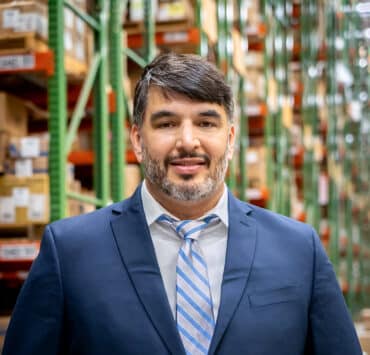|
Getting your Trinity Audio player ready...
|
The career path of Leandro Palencia illustrates how great careers very often do not follow a straight, determined-from-adolescence path. Now vice president and corporate counsel at Wedbush Securities, he shares with younger people how they too can venture outside of and beyond their current career expectations—something first-generation students very often do not know they can do.
“There are very few of us with a Hispanic background who go into the corporate securities industry,” he says. “We gravitate to what we’re familiar with, what is in our upbringing. Not many kids see their parents working in the financial services world. If we go to law school, employment and immigration law is more likely.”
Now to be clear, Palencia’s parents were themselves well educated. His mother was a professor and his father an engineer, but even with those influences he initially struggled to identify what he wanted to do and what he might be good at. In his freshman year of college, he enrolled in a mechanical engineering program.
He quickly discovered he didn’t like it, noting, “I just didn’t enjoy physics very much.” But a summer job with a financial services advisor gave him the career-altering idea to leave engineering behind. He found the industry and products so interesting that he changed his major to finance.
That then led to joining Wedbush after earning his bachelor’s degree. Palencia began as an entry-level associate credit and risk analyst, before moving up to department manager. Clearly, he was on an ascendant path in finance. But along came the global financial crisis of 2008, which led to the Great Recession for several years after that. He started thinking about getting a graduate degree and setting his sights on something different.
“It’s true that some people will continue to see you in your former role. So, I had to convince them through my work.”
Leandro Palencia
“First, I considered getting an MBA,” Palencia says. “But given the economic environment, it seemed to be a bad time for that. That’s when I started to consider getting a law degree. I knew it offered many new paths.”
So, he took the LSATs, scoring well enough to qualify for admission to the Loyola Law School in Palencia’s home of Los Angeles, and he earned a partial scholarship.
Palencia enjoyed law school, where he was in a four-year program of night classes, which he pursued while still employed full-time at Wedbush. Working a 7:00 a.m. to 4:00 p.m. day—on the New York Stock Exchange schedule in the Eastern Time Zone—he was able to sneak in a meal and a nap before heading to classes. Defying Los Angeles conventions, his office, home, and the school campus were all within a short distance from each other, making this schedule a tad less grueling.
Initially, he wasn’t necessarily considering securities or even general business law. “I was open minded as to the specialization,” he says. “But it was easy to gravitate to business law because I understood the concepts from seven years at Wedbush.”
He also looked at the standard career path of lawyers, while in law school, as necessarily including at least a few years working in a firm. Palencia sought out informal, mentoring-like advice from a legal department manager at Wedbush, who advised him on classes and career paths. To his surprise, just prior to taking the bar exam, he was invited to join the Wedbush legal team.
This meant not only skipping the outside counsel career phase but also convincing Wedbush colleagues that he was now a lawyer. That meant dressing the part—wool suits for lawsuits, so to speak—and showing what he knew, one colleague at a time. “It’s true that some people will continue to see you in your former role,” he says. “So, I had to convince them through my work.”
“We gravitate to what we’re familiar with, what is in our upbringing. Not many [Hispanic] kids see their parents working in the financial services world.”
Leandro Palencia
Today he works largely in securities and corporate transactional law, which includes such things as negotiating software licenses with vendors, drafting agreements with Wedbush’s institutional and investment banking clients, and advising various business units on securities law and corporate governance matters.
He is also engaged with the Wedbush DEI lead to help the firm be more welcoming to a diverse range of talent. Just as meaningfully, he works with first-year law students in a program at Loyola that matches them with alumni like himself. He helps them see the opportunities are broader than they might know.
One observation he can share: the diversity of people at Wedbush is probably greater than the industry overall. The firm founder has long championed bilingualism as among the firm’s strengths. Palencia discovered his own opportunities in securities law, and they can too.

